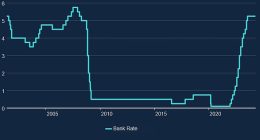
Alphabet’s health division, Verily, has received FDA 510(k) clearance for its Study smart watch for an “on-demand ECG feature.” The Study Watch, announced in April 2017, is not a consumer smartwatch, but instead meant as a test platform for the Google-adjacent company to research how to best gather health data on a wearable.
Back when it was announced, Verily said that it had an ECG feature alongside the usual stuff you expect on a smartwatch — but it didn’t receive clearance from the FDA for it until today (oddly, in the midst of a government shutdown).
When Apple announced its electrocardiogram feature for the Apple Watch, it seemed like a completely unique and differentiating feature. Now, it’s starting to feel like EKG is about to become a bog-standard component on lots of smartwatches. We saw it show up at CES on the Withings Move and a promise that it could be used for biometric identification on a future Motiv ring.
It’s important to note that FDA “clearance” as a Class II device is very different from FDA “approval,” which is typically reserved for Class III devices. The difference, as The Verge’s Angela Chen explained when the Apple Watch received its clearance, is that the FDA isn’t making any judgments on the actual efficacy of the device, only that it’s safe to use:
For Class II and Class I, the FDA doesn’t give “approval,” it just gives clearance. Class I and Class II products are lower-risk products — as Speer puts it, a classic Class I example is something like a tongue depressor — and it’s much easier to get clearance than approval.
Verily’s Study Watch was notable when it was first announced because in some ways it seemed like a more compelling product than smartwatches running Google’s Wear OS platform — if only because it has an e-ink screen and the better battery life that goes with it. Nevertheless, Verily is only using it in studies like Project Baseline, Aurora, and others.
Unlike the Apple Watch, the Study Watch is “a prescription-only device,” though it does use the same “single-lead” method to measure EKGs. Single leads are less accurate than the full test you can get in a medical office, but it potentially has use as a screening tool. Even in those limited use cases, though, false-positives are still a concern to some doctors. Verily says that the EKG feature on the Study Watch is “intended to record, store, transfer, and display single-channel ECG rhythms, and is indicated for use by healthcare professionals, adult patients with known or suspected heart conditions, and health conscious individuals.”
You can probably expect many more devices to get FDA clearing in the coming months and years. Back in 2017, the FDA announced a new pre-certification program along with a bunch of tech companies — clearly with an eye towards getting more devices cleared. Alongside Apple and Verily, the FDA has said it is working with Fitbit, Samsung, and a few other companies as part of the pilot.
This article is from The Verge









